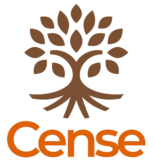
Innovation is learning transformed into value, by design.
– Cameron Norman, Cense Ltd.
Organizations develop c-suite level roles because of a recognized need for focused strategic action and attention toward a particular aspect of their operations. Finance, Operations, Technology are just some of the areas that have developed into C-level roles and offices in many businesses and non-profits.
What about learning? As with many c-suite portfolios, learning touches everyone in an organization and serves as the fundamental mechanism for resilience, flexibility, and innovation. It’s curious that this role doesn’t exist, which is why we developed it ourselves.
A Chief Learning Officer is someone who is responsible for advancing your organization’s understanding of itself, its innovation activities related to its strategy, and its impact.
Why a CLO?
If your organization is substantially affected by changing markets, social and cultural changes, environmental and health threats, or shifts in human or technological resources, you need a CLO.
Learning is about ensuring you’ve got the sensory capacity to take in what is going on around you to monitor activities inside and outside your organization and within the market. It blends together monitoring and evaluation (M & E) with strategic foresight so you can see what you’ve done, where you are, and where things are going.
A CLO is responsible for not only ensuring you have M & E and trend data but that you use it. The CLO ensures that evidence is brought to the table to guide strategy and support innovation — which is learning transformed into value, by design.
Combined with foresight data, this also means ensuring that your organization calibrates its strategy to suit its needs, changing conditions, and ensures its operations and direction is aimed at the future, not the past. As ice hockey legend Wayne Gretzky once said about why he was so great at his game: he skated where the puck is going, not where it’s been.
The CLO role focuses the organization on these insights.
Building on Strengths
Lastly — and just as importantly — the CLO is responsible for fostering a culture of learning within the organization. This involves ensuring that the talents and skills within the organization are recognized, that staff are provided with the opportunity to share what they know to increase the capacity of the organization as a whole, and that new knowledge, skills, and insights are brought in from the outside.
This job is about knowledge and skills integration. It’s about getting the return on the investments made on people, processes, and innovation as a whole. It’s getting the very best from your best.
Best of all, any organization can do this and create this role for themselves and place learning on the same level as other c-suite priorities as we enter an age of transformation and change. Be ready.
If you want to establish a CLO office in your organization or want a fractional CLO to serve in this role, contact us. Our CLO service is designed for this and is aimed at supporting organizations in becoming their best through learning.

